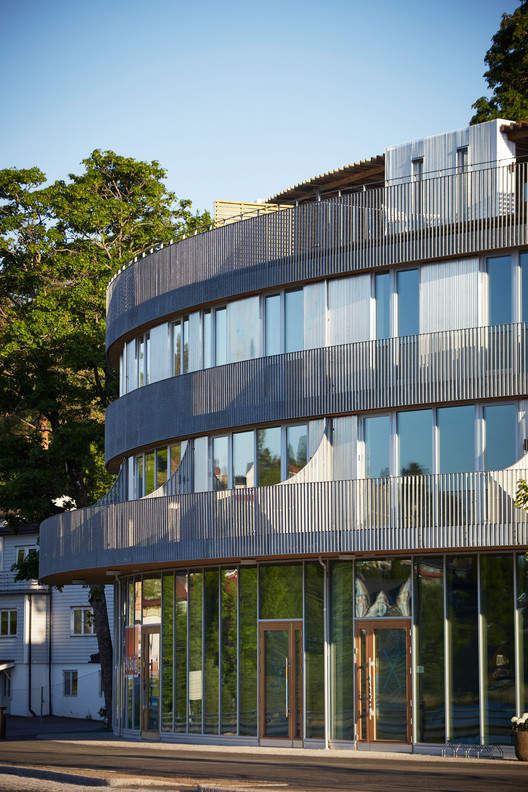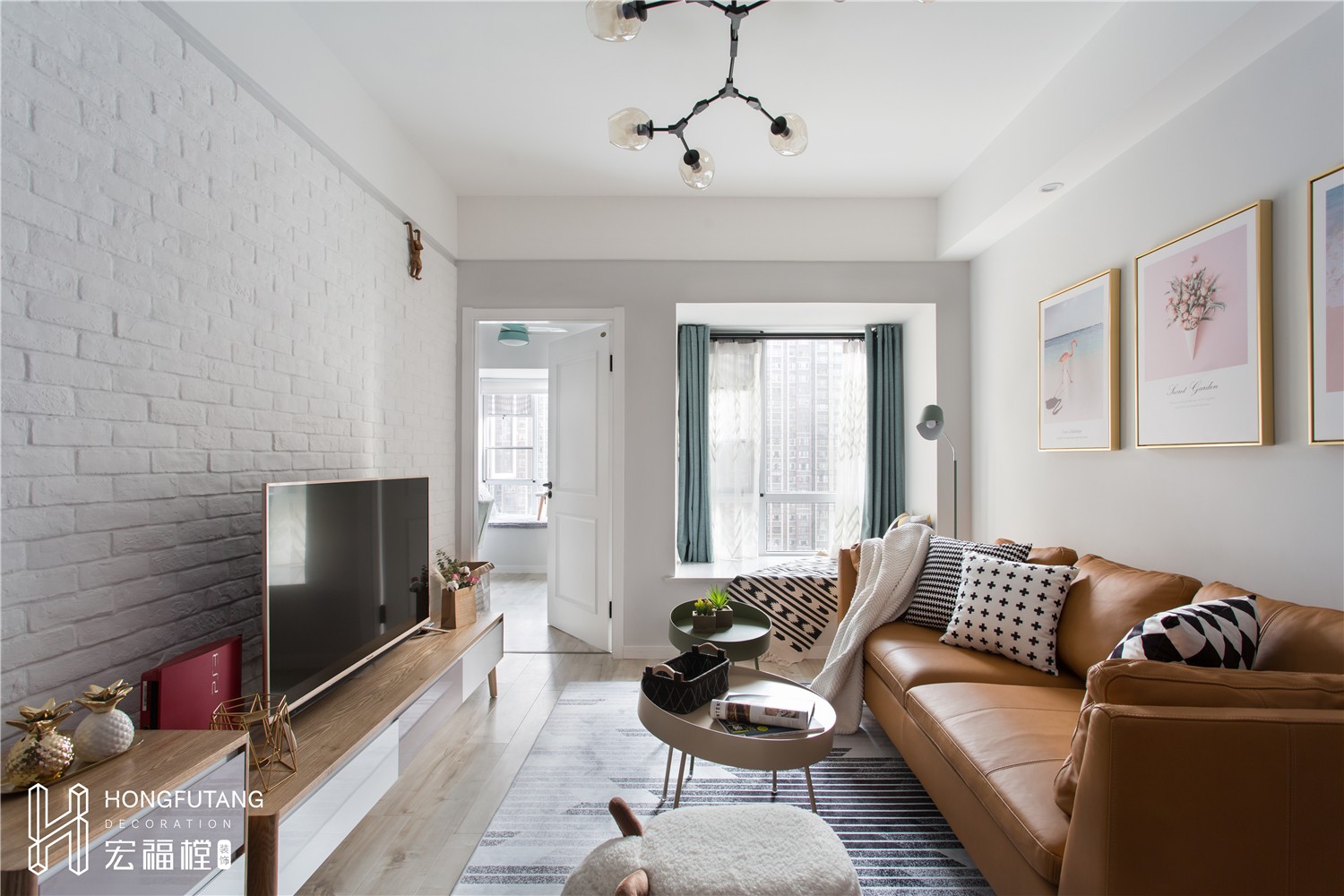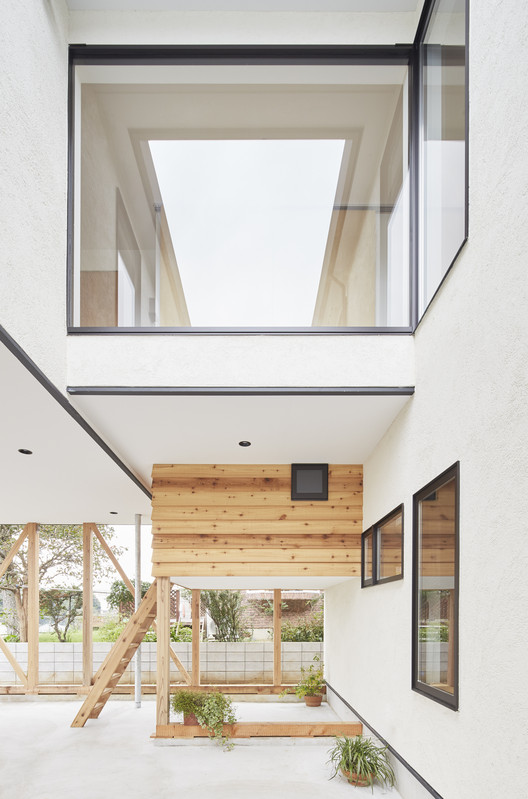The Barnes Foundation Tod Williams + Billie Tsien
2012-05-28 00:00
架构师提供的文本描述。去年,巴恩斯基金会(Albert Barnes)-阿尔伯特·巴恩斯(Albert Barnes)收藏的法国印象派、后印象派、早期现代绘画和园艺-开始从位于宾夕法尼亚州米里恩的最初地点迁至费城的托德·威廉姆斯(Tod Williams)和比莉·齐恩(Billie Tsien)设计的一座新经过近五年的发展,“花园中的画廊”巴恩斯基金会大楼于2012年5月19日正式开业。设计的基础是原建筑内画廊的布置,以及邀请新项目参与该计划的愿望,如花园和教室。
Text description provided by the architects. Last year, The Barnes Foundation - Albert Barnes collection of French Impressionist, Post-Impressionist, early Modern paintings and horticulture - began its move from its original location in Merion, Pennsylvania to a new building designed by Tod Williams and Billie Tsien in Philadelphia. Close to five years in the making, the "Gallery in a Garden" Barnes Foundation Building officially opened on May 19, 2012. The design was predicated on the arrangement of the galleries within the original building and a desire to invite new programs into the scheme, such as a garden and classrooms.
为了与画廊的太阳方向保持一致,这些房间将朝南,沿着本杰明富兰克林公园大道,可以看到沿路的伦敦梧桐树。藏品画廊的设计简化了细节,为艺术品提供了更好的亮度。这些细节,如减轻木材上的光洁度,简单的地板图案和重新塑造天花板以分配人造光,有助于照亮和澄清在画廊内的观看。二楼的画廊有一个牧师室,把顶灯吸引到空间里,并通过百叶窗扩散开来。
In keeping with the solar orientation of the galleries, the rooms will face south along the Benjamin Franklin Parkway, offering a view of the London plane trees along the road. The Collection Gallery has been designed with simplified detail to provide better luminosity for the artwork. Such details as lightening the finish on the wood, simple floor patterns and re-shaping the ceiling to distribute artificial light helped brighten and clarify the viewing within the galleries. The second floor galleries have a clerestory that draws top-light into the spaces and is diffused through louvers.
新建筑的目标是从美国绿色建筑委员会(USGBC)获得LEED白金认证。建筑师们采用了特定的材料和策略来实现这些结果:低VOC产品或无VOC产品,FSC认证的木材,回收产品和再生材料,拆除回收,节能40%的节能措施,光伏电池板,总计1.2万平方英尺的光棚,以及一个40,000加仑的雨水收集器和蓄水池提供的景观灌溉。
The new building aims for LEED Platinum certification from the United States Green Building Council (USGBC). The architects employed specific materials and strategies to achieve these results: low- or no-VOC products, FSC certified woods, recycled products and reclaimed materials, demolition recycling, energy savings with a 40% reduction in energy use, photovoltaic panels that add up to twelve thousand square feet of the Light Canopy, and landscape irrigation provided by a 40,000-gallon rainwater collector and cistern.
进入体验的目的是为游客创造一个宁静的环境。选择的材料提供了一个宁静的环境:透明玻璃,比利时亚麻布和橡木战斗,核桃楼梯,半透明绿色窗帘,喷砂建筑混凝土和石灰石。大堂提供信息、入场券、会员以及节目和活动信息。
The entry experience is designed to create a tranquil environment for visitors. The materials chosen provide a serene environment: transparent glass, Belgian linen and oak wood battons, a walnut staircase, translucent green curtain, sand-blasted architectural concrete and limestone. The lobby provides access to information, tickets, membership and program and event information.
教育空间是位于大楼较低层的藏品廊内的补充教学区域。这一空间包括一个宽敞的大厅、舒适的座位和藏书的图书馆书架、150个座位的礼堂、两个研究室和一个咖啡吧。图书馆包住了画廊花园,并提供了室外景观空间的通道。教育领域可以容纳讨论,讲座和数字教学。入口处也使用了类似的材料:石灰石、比利时亚麻布、白橡木和石膏制成的声学板。
The education spaces are supplemental teaching areas located within the Collection Gallery in the lower level of the building. This spaces includes a generous lobby with comfortable seating and a library shelf of Collection books, access to a 150-seat auditorium, two seminar rooms and a coffee bar. The library wraps the Gallery Garden and provides access to the outdoor landscaped spaces. The education area can accommodate discussion, lecture and digital instruction. Similar materials incorporated into the entry are used in the auditorium: limestone, acoustic panels of Belgian linen and white oak and plaster.
灯光法庭被描述为巴恩斯基金会大楼的起居室。过渡空间可用于白天的休闲座位、对话和团体定位,以及晚上灵活的活动空间。天花板是为吸声羊毛隔音板而设计的。这层地板是用德国文艺复兴时期的灰石灰石刷过的一种回收的巴西胡桃(Ipe)。展览馆在用途上有别于收藏画廊,但与传统房间的材料选择相呼应。展览馆有16英尺高的天花板,用于当代雕塑和数码投影.
The Light Court is described as the living room of the Barnes Foundation building. The transitional space can be used for casual seating, conversation and group orientations during the day and flexible event space at night. The ceiling is designed for sound absorption with wool acoustic panels. The floor is a reclaimed ipe (Brazilian Walnut) and brushed with German Renaissance Grey Limestone. The Exhibition Gallery is set apart from the Collection Gallery in its uses, but echoes the same material choices of the traditional room. The Exhibition Gallery is designed with 16-foot ceilings for contemporary sculpture and digital projection.
这座建筑的材料选择非常具体。包裹外部的石头是一颗被化石化的以色列石灰石,名叫雷蒙·格雷(RamonGray)。它是在内盖夫沙漠采石,在西岸由一个以色列/巴勒斯坦财团切割和完成。这块石头与保罗·菲利普·克里特为梅里恩画廊挑选的法国石灰石相呼应。展馆及较低层由现浇混凝土组成,经喷砂处理。材料的选择是为了表达与建筑物内容物有关的重量和持久性。
The material choices for the building are highly specific. The stone that wraps the exterior is a fossilized Israeli Limestone called Ramon Grey. It is quarried in the Negev Desert and cut and finished in the West Bank by an Israeli/Palestinian consortium. The stone echoes the French Limestone chosen by Paul Phillipe Cret for the Merion Gallery. The Pavilion and lower level of the building is composed of cast-in-place concrete that is treated by sand-blasting. The material was chosen to express weight and permanence in relation to the contents of the building.
为了开发这一景观,建筑师托德·威廉姆斯和比莉·齐安与奥林的劳里·奥林合作,创造了一种将城市拒之门外的景观体验。其结果是,一个符合自然循环通过画廊房间的花园,定义了“画廊在花园,花园在画廊”的概念。奥林选择了一系列的银杏和甜树胶树,这些树将在垂直的画廊花园里生长。
To develop the landscape, architects Tod Williams and Billie Tsien collaborated with Laurie Olin of OLIN to create an experience of the landscape that shut out the city beyond the garden. The result was a garden that fit within the natural circulation through the gallery rooms, defining the concept of "gallery in a garden, garden in a gallery". OLIN chose an array of Gingko and Sweetgum trees that will grow to fill the vertical Gallery Garden.
这座位于费城市中心的93,000平方英尺的建筑为这座城市提供了一系列的设施和核心项目,其中包括艺术教育、临时展览和游客便利设施。它把梅里恩画廊的空间带入一个新的设施,复制,但建立在阿尔伯特巴恩斯的原始愿景。它不仅在本杰明富兰克林大道(Benjamin Franklin Parkway)增加了一座环保建筑,而且还重新绿化了画廊空间和相邻街道。
The 93,000 square foot building in downtown Philadelphia provides the city with a range of facilities and core programs that involve art education, temporary exhibitions and visitor amenities. It brings the Merion Gallery's spaces into a new facility that replicates but builds upon Albert Barnes' original vision. Not only does it add an environmentally responsible building along Benjamin Franklin Parkway, but it also re-greens the the gallery spaces and adjacent streets.
 举报
举报
别默默的看了,快登录帮我评论一下吧!:)
注册
登录
更多评论
相关文章
-

描边风设计中,最容易犯的8种问题分析
2018年走过了四分之一,LOGO设计趋势也清晰了LOGO设计
-

描边风设计中,最容易犯的8种问题分析
2018年走过了四分之一,LOGO设计趋势也清晰了LOGO设计
-

描边风设计中,最容易犯的8种问题分析
2018年走过了四分之一,LOGO设计趋势也清晰了LOGO设计
















































































































